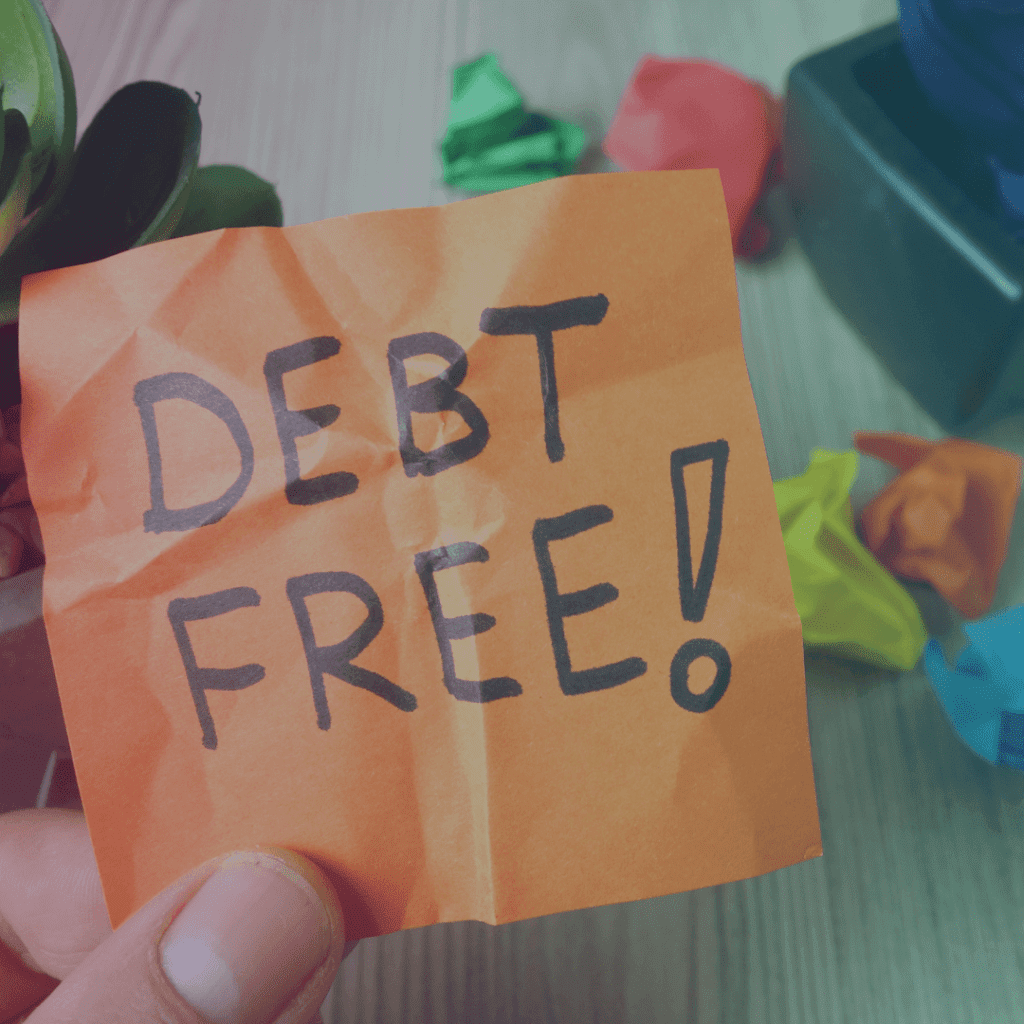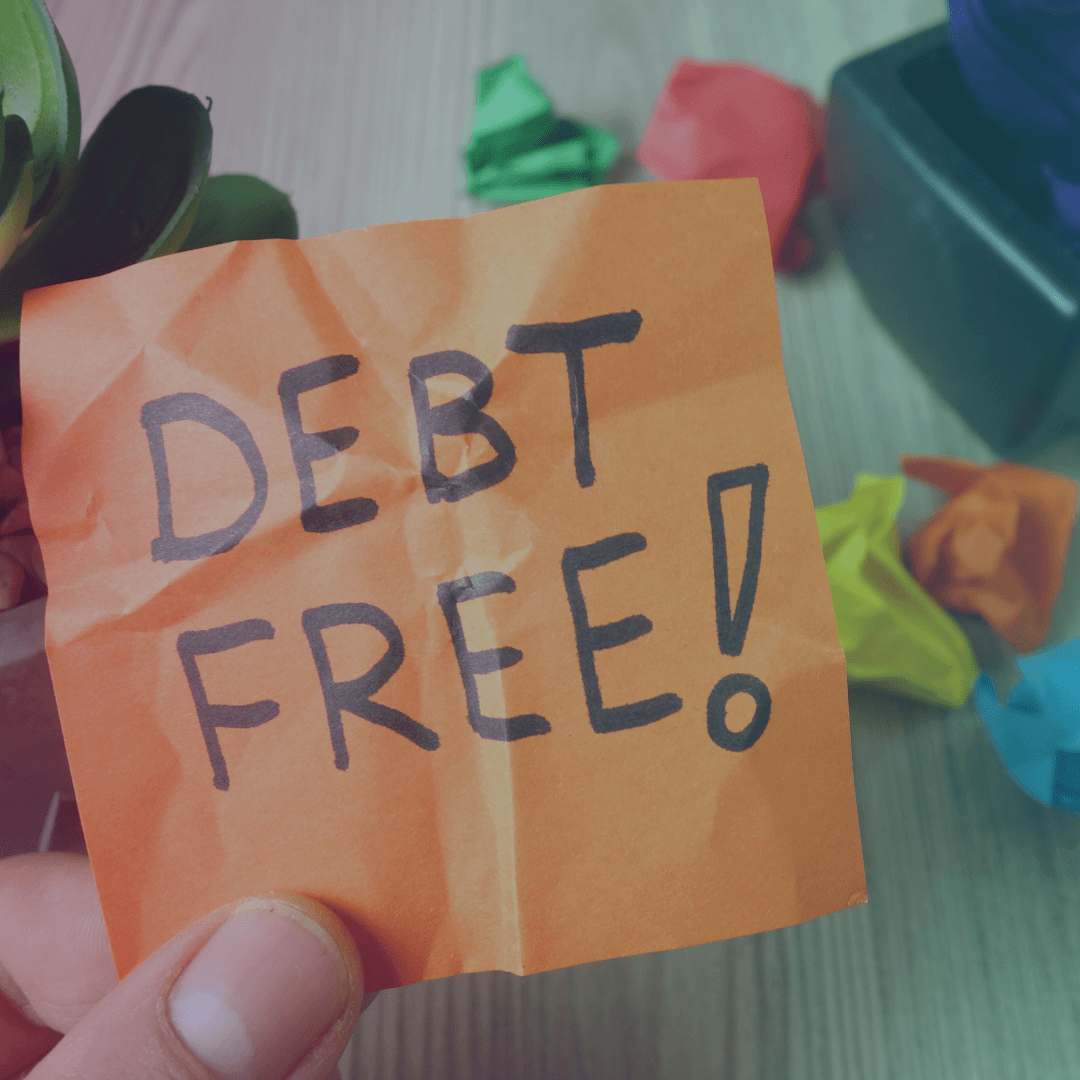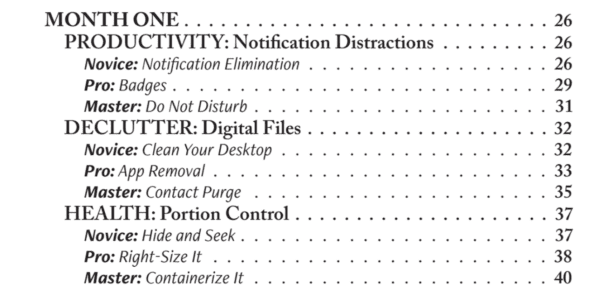Would you rather listen instead? Click here for a the 16-minute audio recording

When I tell people I own my home and have no credit card debt, I'm always asked how I became debt-free at 46.
When I was little and got money for my birthday, I divided it into four envelopes in my closet—Savings, Spending, Gifts, and Something Special. I don't remember anyone teaching me this method, and I used it until college when I kept it in my bank account and switched to a spreadsheet.
I started babysitting when I was twelve and never stopped working…scooping ice cream, making pizzas, and working retail. This envelope method carried on throughout my life and grew to include more categories. Remember when I said I don't recall learning this? Imagine my surprise in college when I heard that this was a thing and there was some guy named Dave Ramsey talking about it. I was so confused. I remember thinking, “What? I came up with this!” Haha! I guess it wasn't that innovative. 🙁
School
I graduated from college without a lot of debt because I chose to go where I received scholarships for undergrad and an assistantship for my master's. My parents paid for the other part of my undergrad, and I worked to cover my rent and spending money. I've always prided myself on paying for my clothes and school, even lying to my mom about how much my rent really cost so that she wouldn't give me more money to pay for it. I taught aerobics, catered, waited tables, read for the visually impaired, and wrote for the hearing-impaired. I ended up getting out of graduate school in 1998 with about $6k in loan bills. I was fortunate (and tired, but that's another story). On the other hand, my husband had about $30k in debt, and that's how we started our marriage.
I know that today, with the egregious cost of getting an education, this seems like chump change. I can do nothing about what it cost back then and the difference today.
Homes
Fast forward, and we have bought four houses. We bought our first house in Washington DC in 2000, and it was the biggest in square footage. We then moved to Cary, NC, to escape the violence in DC and live somewhere that we would actually be able to afford to retire at some point. We made about $100k on that DC house in just three years and used it to pay 30% down on our next house, buy a new car, pay off Kevin's loans and remodel the home. We moved again five years later and lost money on that house. Not a lot, but about 10K because we bought at the top of the market and sold when it was stagnant. Homes are supposed to APPRECIATE, not DEPRECIATE!
When we bought our current house, it was the smallest we've owned (1100 sq feet), but the one that makes the most sense. We kept paying the same amount on our mortgage as we did our more expensive house because we knew we could spend that much. It was a fixer-upper, but thankfully my husband is handy and is good at that kind of thing. I, on the other hand, would hire someone to do everything. I'm not a ‘house-projects' person.
When I had a great year in 2020, we put every dime we could toward the house until it was paid six months into the pandemic. It was more critical for us as two self-employed business owners to have zero debt. It felt like a huge relief to pay off our house, and it made sense for us without knowing what the pandemic would bring. The money we had saved to go to Thailand after paying it off was put toward some remodeling since going overseas during COVID didn't seem appealing at the time.
We also have a category for home maintenance, which keeps accumulating with the money I put in every month until I need it. It certainly came in handy recently when we had to shell out $3500 on a new well pump!
Cars
Our last four cars we have paid cash for. Since my late twenties, I started saving for the next one as soon as I paid off a car. We drive our cars until they die, for the most part, so I could pay cash for my 2012 Kia Soul, which I still drive today.
Retirement and Accounting
In my late 20s, I started investing in a Roth IRA. Before that, I only made enough (I felt) to push money into my savings and build up a six-month emergency fund. I have never gone a year since I was 27 without maxing out both of our Roths. I also have other retirement and investment accounts. In 2004 I hired Williams Wealth Management to keep me on the right path. I have great trust in him.
I also work closely with my CPA, Joel Levy, to make sure I wouldn't feel anxious if ever audited. He also does my payroll, which is a big load off of me. If you are a business owner, make sure you're on the payroll!
Vacations
We've had some fabulous vacations. For our 5th anniversary, we went to London after saving just $50 a month until we had enough to go. I just ended a six-year stint going to Mexico for three weeks annually. This summer we're going to Ghana. We already have money saved back to go to Hawaii or Thailand (whichever comes first depends on this damn virus!). All of these are paid for just putting a little bit away every month (just like those envelopes).
Business Debt and Expenses
Fifteen years ago, my husband owned his own drum studio, and we were in what we considered serious debt and sold it at a loss. We made payments and always put extra toward the bill until it was gone.
When I started my business, I set aside six months of expenses (what I called my Freedom Fund) before walking away from my six-figure salary. I hardly made any money in the first couple of years, but we managed to keep replenishing that Freedom Fund. We even still donated to our charity of choice, the Fistula Foundation, because I had put back money for that. As sustainers, it automatically comes out of our account to pay for a fistula surgery every month, and it's a bill like any other bill.
I've also never paid for anything for my business I couldn't pay for that month, and I never used our emergency funds because having my own business was not an emergency 🙂
Other key things I've done to be debt-free:
- I've read a lot of money books over the last 25 years. So much that I don't learn much anymore and have stopped reading them. Except for cryptocurrency…I'm still learning about that (and still not understanding it). Oh, and I've never read Dave Ramsey 😉
- We do not live above our means. That envelope method worked for us! If we didn't have it, we didn't spend it.
- I don't care about the last name Jones. I have no desire to keep up with them.
- I've always had categories for fun stuff on top of saving and investing. It just takes a little longer to get there sometimes.
- We pay off our credit cards every month. I've had a balance of about a total of four months in my life. If I can't afford it, I don't buy it.
- I pay my retirement and investment accounts first, with my goal being to max out everything I can each year.
- I use the budgeting software You Need a Budget and HIGHLY recommend it. I even duplicate efforts and use it for my business budget even though I must use Quickbooks for my accountant. QB budgeting is nothing compared to YNAB, and it's way too complex.
- I hired a small business financial coach, Sylvia Inks, one of our fabulous RaderCo Team Specialists. I highly recommend her book, Small Business Finance for the Busy Entrepreneur.
- As a business owner, I have about $10k earmarked just for health care expenses. For two self-employed people, health care is our most considerable expense. We save loads of money and get what I consider better care using Direct Primary Care. We also use Sedera Medical Cost-Sharing.
- People spend their money on different things…cars, homes, vacations. I spent a TON of money on triathlon, adventure, and mountain bike racing. My husband spends his money on music equipment and software. Currently, I don't have any expensive hobbies, except beauty and self-care treatments. But that's a necessity, right?
We do not make loads of money and are far from rich, but I do consider myself wealthy in terms of my debt-free stress. I know that not everyone can do this, but this is how I did it and what worked for me. It does take discipline, and it can be done!
For the love of kittens, I ask, please, please, please, know your finances. Schedule a meeting at least monthly with your partner (Kevin and I do weekly) to discuss your money status, where you are, where you want to be, and your financial goals. Whether you choose to pay off all your debts or invest differently, at least have a plan. Don't be the person working when they're 75 because they have to. And you never know when something could happen to you that would prohibit you from working. People on disability didn't plan to be there.
There you have it. How I became debt-free at 46.
Here's to your financial success!


